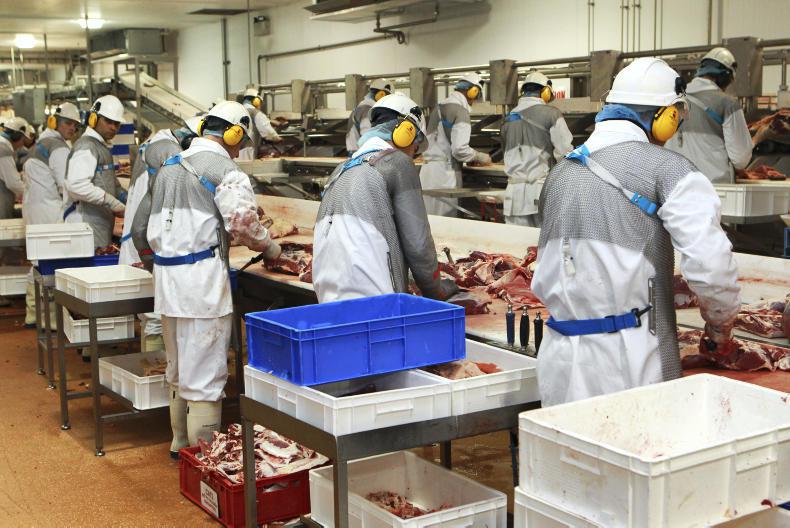Food supply chains are being pushed to “breaking point” due to labour shortages in the UK agri food sector, according to a new industry report.
The document was prepared by organisations from across the supply chain, including the National Farmers’ Union, the British Meat Processors Association, Dairy UK, and the Road Haulage Association.
The report includes survey results which show the average job vacancy rate in food-related businesses is currently 13% and it estimates that there could be over 500,000 vacancies across the entire industry.
“These shortages are placing huge pressure on the sector and there is a very real chance that they could quickly reach breaking point,” the report states.
The issue extends to the NI agri food sector with some local meat factories reducing throughput in recent weeks due to staff shortages, meaning farmers have faced delays in getting animals slaughtered.
Factories are also having to prioritise staff on lines, meaning some fifth-quarter cuts are not currently being harvested.
Visa programme
The authors of the report, which compromises 12 different industry bodies, are calling on the government to introduce a 12-month COVID-19 recovery visa programme to give businesses access to more migrant labour.
“Not only has the reduction in free movement of people impacted the availability of workers but there is the added pressure of the COVID-19 pandemic which has put increased demand across the supply chain and exacerbated the existing labour shortage,” the report states.
It is estimated that 1.3m foreign-born workers have left the UK since the start of the pandemic and the report states that travel restrictions and lockdowns have caused “significant disruption” to the food supply chain.
Other underlying labour issues within the UK’s agri food sector also remain, including an ageing workforce, a reliance on migrant labour and a skills shortage at all levels in the industry.
The report’s authors also want the government to put in place a permanent seasonal worker scheme for horticulture businesses and to conduct an urgent review into the impact that ending free movement since Brexit has had on the food and farming sector.
Reluctance
Sources indicate that the government is reluctant to change immigration rules until after the furlough scheme ends on 30 September 2021. At the end of June, official statistics showed that 1.9m were still on furlough (other estimates put it at between 1.1m and 1.6m). In NI, the figure stood at 44,000.
“It is simplistic to argue that the end of furlough will see many more people meeting this shortfall. Furloughed workers are concentrated in urban areas and not where many agri-food roles are located,” said National Farmers’ Union vice-president Tom Bradshaw.
“A solution to this crisis will need the right people with the right skills and training available in rural areas where many roles are based,” he added.
NI food processors highlight labour issues
Significant labour shortages could risk higher prices, reduce consumer choice and stall NI’s recovery from the COVID-19 pandemic, NI food industry leaders have warned.
In a statement, the executive director of the NI Food and Drink Association (NIFDA) Michael Bell, described the current situation as “unsustainable” and called on the Stormont Executive to address the issue urgently.
He said that the combination of Brexit and COVID-19 has created a “perfect storm”, leaving the agri-food industry struggling to meet demand.
“The problem is particularly acute in NI, where some firms are operating at between 75% and 90% of normal staffing levels. Additionally, a shortage of HGV drivers is causing serious issues across the food supply chain, from the farm to supermarket shelves,” said Bell.









SHARING OPTIONS